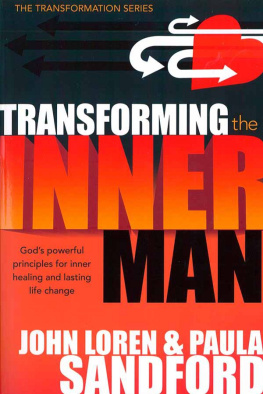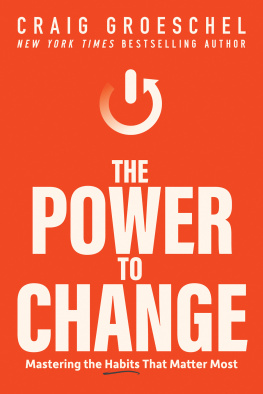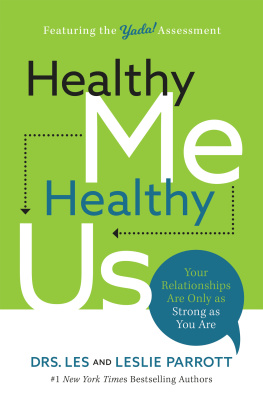FINDING IDENTITY
AND CALLING
My child, when you come to serve the Lord, prepare yourself for testing. Set your heart right and be steadfast, and do not be impetuous in time of calamity. Cling to him and do not depart, so that your last days may be prosperous. Accept whatever befalls you, and in times of humiliation be patient. For gold is tested in the fire, and those found acceptable, in the furnace of humiliation. Trust in him, and he will help you; make your ways straight, and hope in him.
SIRACH 2:16, NRSV, THE APOCRYPHA
There is an appointed time for everything. And there is a time for every event under heavena time to give birth, and a time to die; a time to plant, and a time to uproot what is planted. A time to kill, and a time to heal; a time to tear down, and a time to build up. A time to weep, and a time to laugh; a time to mourn, and a time to dance. A time to throw stones, and a time to gather stones; a time to embrace, and a time to shun embracing. A time to search, and a time to give up as lost; a time to keep, and a time to throw away. A time to tear apart, and a time to sew together; a time to be silent, and a time to speak. A time to love, and a time to hate; a time for war, and a time for peace.
ECCLESIASTES 3:18
T here are two great and conflicting lessons to be learned in maturation. One is called individuation, which means separating yourself from all formative influences and becoming your own person. The other is incorporationto become a corporate person, part of a group, sensitive to the desires and wishes of others. One definition of maturity is to learn to think in we terms rather than only me, myself, and I. These two tasks cross over in conflict drasticallyand both are tasks that we deal with during our teen years.
As a teenager it may have been difficult to find the balance between being free to be your own person and yet being part of your family. From ages thirteen to fifteen, Mom and Dad may have treated you as though you were still ten and expected you to step to old family loyalties and activities when other drummers beat wildly in your ears. At eighteen, college cliques clamored for conformity just when your bones cried out for individuality. About nineteen to twenty-one, no sooner than you became your own person did genes and juices start working trying to unite you to a spouseand corporateness.
This process of alternation between individuating and incorporating is very important, because without individuation, we cannot become healthily corporate. We either cop out from who we are to mimic accepted group roles and dynamics, or we try to beat the drum everyone else must step to. Only when you are a fully free individual will you have what is needed to give yourself to a group and to accept the give and take of healthy relationships.
Let us now follow this process from individuation and internalization to incorporation.
THE TASK OF BECOMING CORPORATE
A teenager has two primary tasks before becoming corporate. First, he must individuate, or cut free from everything and everyone who has formed himwho has birthed, fed, housed, clothed, instructed, disciplined, and given him love. Second, he must internalize. Everything in his life has come to him from outside him, from others. None of it has yet become fully his own, from within. Since he may own many possessions and the family is his, his parents may say, Everything we have is yours, not comprehending how he feels, since it was all theirs given to him, not something of his own creation and choosing as a mature person from within himself. He must now ponder all the teaching and examples of his parents (and teachers), burn his fingers, and find out for himself why law is law and life is what it is. Wisdom, understanding, morality and faith, purpose and ambition, habits and practices, fellowship and joys, all must become his own by the painful process of inner wrestling with his own thoughts and emotions. There is no shortcut, no easy way to do it. Individuation and internalization are the Scylla and Charybdis through which he must pass or fail to become an adult.
Individuation
Individuation does not begin with the teenage years; it climaxes there. It begins at the moment of formation in the womb, as cells become their own entity, not the mother. Were the cells to be absorbed, no new life could begin. Individuation is the price of life. Birth means further individuation. Cutting the umbilical cord forces becoming organically ones own entity. Weaning, managing to walk rather than be carried, learning to talk, mastering the toiletall are steps effecting individuation. Failure to accomplish any of these reduces the person to dependence and so reconnects the umbilical cord emotionally.
Individuation is accomplished first externally and then internally; first physically, then mentally; and finally, emotionally and morally, then spiritually. Birth and weaning begin to break organic dependence. Each lesson cuts more physical dependencieswalking, handling ones own table utensils, dressing oneself, and so on. However, long beyond infancy we remain not only physically but also emotionally and mentally dependent. Going to school initiates the process of mental weaning and the beginnings of emotional individuation. But these are only begun. Morality and spirituality are still nascent, formative, and dependent. Each stepSunday school, public school, exams and discipleship, church attendance, interaction with friends, and so oncalls for further and more interior individuation.
During the teenage years it climaxes like a volcano, long bubbling to eruption. What makes the trouble usually is a two-sided squeeze. On the one hand, the father and mother may be unprepared to handle a teenager or even to admit their son or daughter is that old. They may not realize what is happening inside him, seeing all his changes in behavior as something horrible, something needing to be corrected by tightening down the screws. On the other hand, most teenagers cannot be consistent. One moment a young person may be responsible and sensitive, and the next he becomes totally self-centered and irresponsible. One moment he wants to brave the world, and in the next, he has fled halfway back to the womb. Normally, without training, neither parents nor teenagers understand or even are conscious of what is going on. Subliminal forces push, and old patterns no longer can contain the new urges. Impulses may be tried and rebuffed or not tried and repressed. Attempts at communication batten down doors to empty roomsneither the parent nor the teenager occupy those places anymore, and neither realizes it.
Teenage individuation becomes more difficult by the fact that the very loved ones who have given everything a teenager is have now become the problem! Even if parents are wise enough to understand and let their teenager try some things, theytheir love, their presence, their thinkingare now in the way of finding ones ownthe second task, internalization. We must stand against the very people we want to love and admire, and more cogently whose approval we need, at the very moment when, if they give it, we seem sometimes to be put down to childhood again, or the enterprise of discovery has been stolen from us.
Surely the prodigal son of Luke 15 was the sinner we have all heard sermons about, but one thing needs to be said in his favor. Though asking for his share of his familys good was tantamount to wishing his father were already dead, he was at least doing what every teenager must dotaking hold of what is his own in order to individuate and internalize. The cost was all his substance (perhaps he could have learned an easier way), but it was not merely an expression of largesse that when he returned his father placed the ring of authority on his finger and the robe of ruling on his shoulders (Luke 15:22). His father saw that he had become his own man. He was now qualified to rule. We can now easily see that the remark of the elder brother is that of an unindividuated child:
Next page










